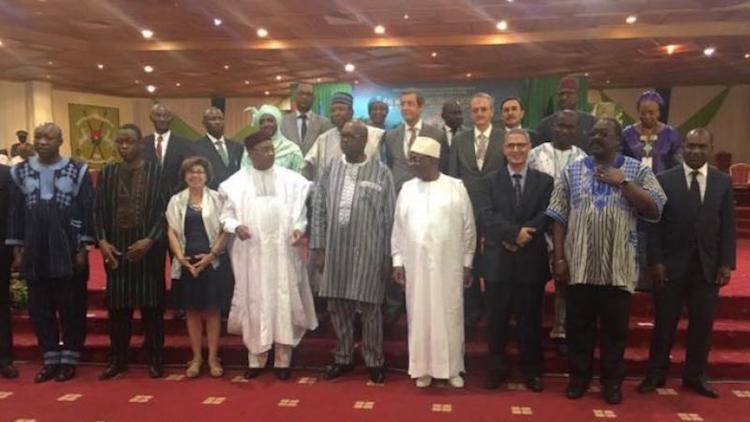By Rita Joshi
BONN (IDN) – Senior government ministers from several African countries have emphasized the need for addressing the plight of jobless young people in sub-Saharan Africa. Ignoring their predicament is a recipe for political instability and global insecurity, warned a high-level symposium of Africa’s interior, environment and foreign affairs ministers in Ouagadougou, the capital of Burkina Faso,
The Symposium on June 15 examined the threats connected to sustainability, stability and security, namely, conflicts linked to access to degrading natural resources, instability due to unemployment of rural youth and insecurity and the risk of the radicalization triggered by social and economic marginalization and exposure to extremist groups.
The Symposium was part of the global celebration of World Day to Combat Desertification on June 17. Two days earlier, more than 170 civil society representatives from Africa participated in their World Day observance, also in Ouagadougou, and organized by SQQ.o.g, a local non-governmental organization (NGO), to prepare for the International Summit of CSOs titled, Oesertif’actions 2017, to be held on June 27 and 28, 2017 in Strasbourg, France.
The outcomes of the Strasbourg Summit will be presented to the 13th session of the Conference of the Parties to the UNCCD to be held in Ordas, China, in September 2017, and the 23rd session of the Conference of Parties to the Climate Change Convention in Bonn.
According to a press release by the UN Convention to Combat Desertification (UNCCD) secretariat in Bonn, the government ministers called for support to create land-based jobs in the rural areas to ward off the temptation for the most disillusioned to take up alternative but dangerous sources of income.
This is the first time high-ranking officials drawn from Africa’s foreign affairs, environment and interior ministries have gathered to find solutions to Africa’s growing challenge of rural youth unemployment that is driving distress migration and radicalization of disillusioned young men.
The call came within weeks of the Group of 7 (G-7) leaders declaring that Africa’s security, stability and sustainable development are high priorities for the block comprising Britain, France, Germany, Italy, Canada, USA and Japan.
The symposium held on June 15 in Ouagadougou stressed that Africa’s heavy reliance on the natural resource base for livelihoods is a challenge, and its mismanagement increases household risks and amplifies the vulnerability of millions of people.
They called for the identification of sites where tenure or access to land rights can be secured and provided to vulnerable at-risk-groups. They also called for partnerships to create 2 million secure land-based jobs through rehabilitation of 10 million hectares of degraded land. Furthermore, they stressed the need for investment in rural infrastructure, rehabilitation tools and skills development and prioritization of job creation in unstable and insecure areas.
President Roch Marc Christian Kabore of Burkina Faso, Ibrahim Boubacar Keita of Mali and Mahammadou lssoufou of Niger said in a joint statement: “Drought, food insecurity, water scarcity, unemployment, hopelessness about the future and poverty are fertile grounds for extremism, and a sign of insecurity, instability and unsustainability.”
They recalled that the 1st African Action Summit of Heads of State and Government held in Marrakesh in 2016 launched the Sustainability, Stability and Security initiative – the 35 Initiative – with a commitment to speed up the restoration and rehabilitation of degraded lands as a means to create jobs for rural youth. “The question we must answer today is this: are we capable of continuing to invest for the future?”
UNCCD Executive Secretary Monique Barbut pointed out that more than 375 million young people will enter Africa’s job market over the next 15 years, of whom 200 million be living in the rural areas. “Millions of rural young people face an uncertain future due to the lack of decent rural jobs and continuous loss of livelihoods due to land degradation and falling yields.”
She warned that frustrations among the youth will boil over with more migration and more conflict over a shriveling resource base. “The challenge is bigger than just a matter of a million young African’s attempting to make the move towards Europe over the course of a year,” Barbut said.
The UK Ministry of Defence estimates up to 60 million Africans are at risk of distressed migration as a result of land degradation and desertification pressures in the next two decades, she said. “Imagine what could happen if each of you committed to rehabilitate 100,000 hectares of land in your respective countries.”
During the celebrations, Barbut announced the two winners of the prestigious Land for Life Award: Practical Action Sudan/UNEP from South Sudan; Watershed Organization Trust from India. The Land for Life China award was given to Yingzhen Pan, Director General of National Bureau to Combat Desertification, China. [IDN-INPS – 16 June 2017]
Photo: African ministers at the global observance of the World Day to Combat Desertification in Burkina Faso.
IDN is flagship agency of the International Press Syndicate.
facebook.com/IDN.GoingDeeper – twitter.com/InDepthNews

